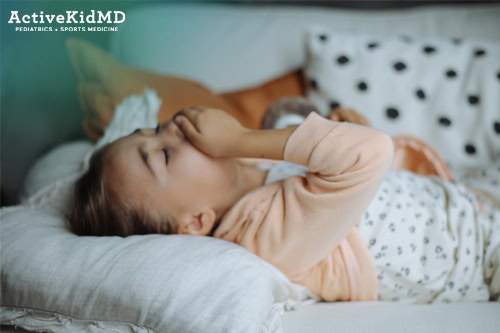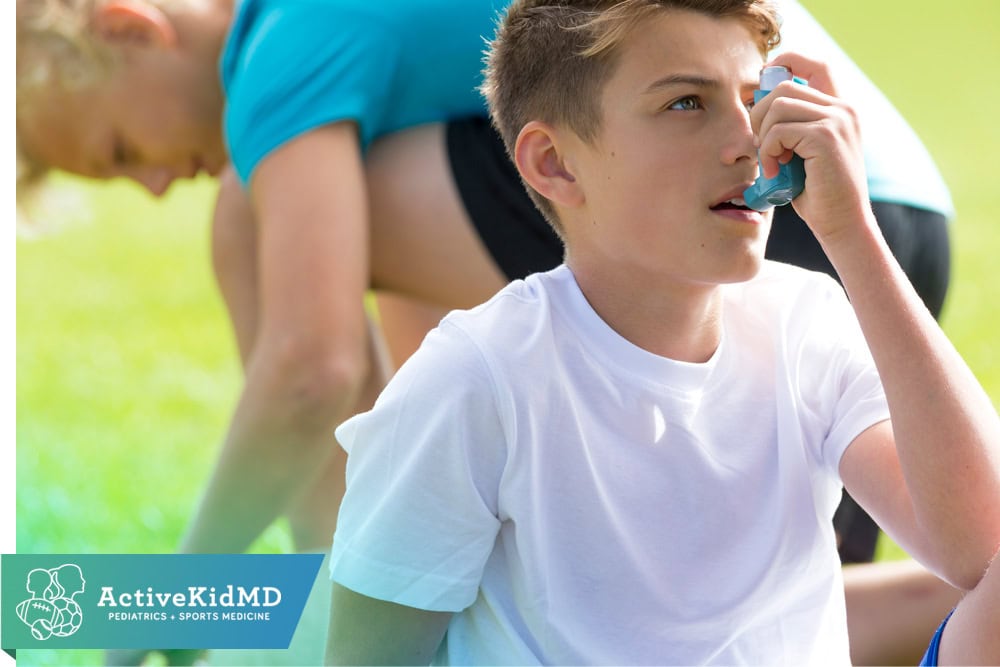Young children might seem to always have coughs and congestion, especially in the winter months.
How does a pediatrician decide when that cough and congestion might be from something more like asthma?
What exactly is asthma?
There are 2 main changes in the lungs with asthma:
- Narrowing of medium and smaller airways (called bronchospasm). Think of toilet paper roll going down to the size of a straw.
- Swelling and inflammation of those medium and smaller airways. Think of Jell-O in those already narrowed airways.
The cough from asthma attempts to re-open airways and clear that inflammation.
A cough from those narrowed airways with inflammation might have a wheezing sound from reduced airflow. Most of the time, a stethoscope is needed to hear a wheeze, but on occasion, a higher pitched wheeze can be heard by the naked ear. One illness episode with wheezing does not equal a diagnosis of asthma, but if a child has 2-3 or more illnesses with wheezing, then start thinking asthma.

Kids with asthma tend to get sick more often than siblings or peers, have more intense coughs, and take longer to get better.
While other kids will get sick and cough, then be perfectly fine with no sickness issues between illnesses, kids with asthma might have that cough that doesn’t seem to go away. Not every long-term cough is due to asthma, but a cough that is always there does make you suspicious.
Kids whose parents or siblings have asthma are at higher risk for developing asthma.
Asthma likes to run in the same circles with other disease conditions such as eczema and hay fever. A child who has either one of these or a longer-term cough might very well have asthma. Flares of eczema and hay fever tend to be associated with asthma flares.
Irritants in the environment such as smoke, perfumes, animal hair/dander, pollens, grass and trees can lead to asthma symptoms. On occasion, allergy testing may help determine triggers and how to reduce exposure.
Related topic: Click here for Children and Allergies – Which Test is Best?
A cough due to asthma can be worsened by activity – something as common as laughing or feeding in a younger child or running/jumping or singing in an older child. Some kids with asthma only have a cough triggered by exertion. This is called exertional or exercise-related asthma.
Related topic: Click here for more information on Breathing Issues in Athletes
An asthmatic cough may also worsen at night, possibly due to colder environments or from more relaxed airways during sleep.

- Cough during or after exercise
- Cough at night that awakens a child or keeps a child from being able to fall asleep
If you think your child’s cough is too loud, lasts too long, or seems to be coming back too quickly, then start thinking asthma. Get a medical evaluation to help your child.


